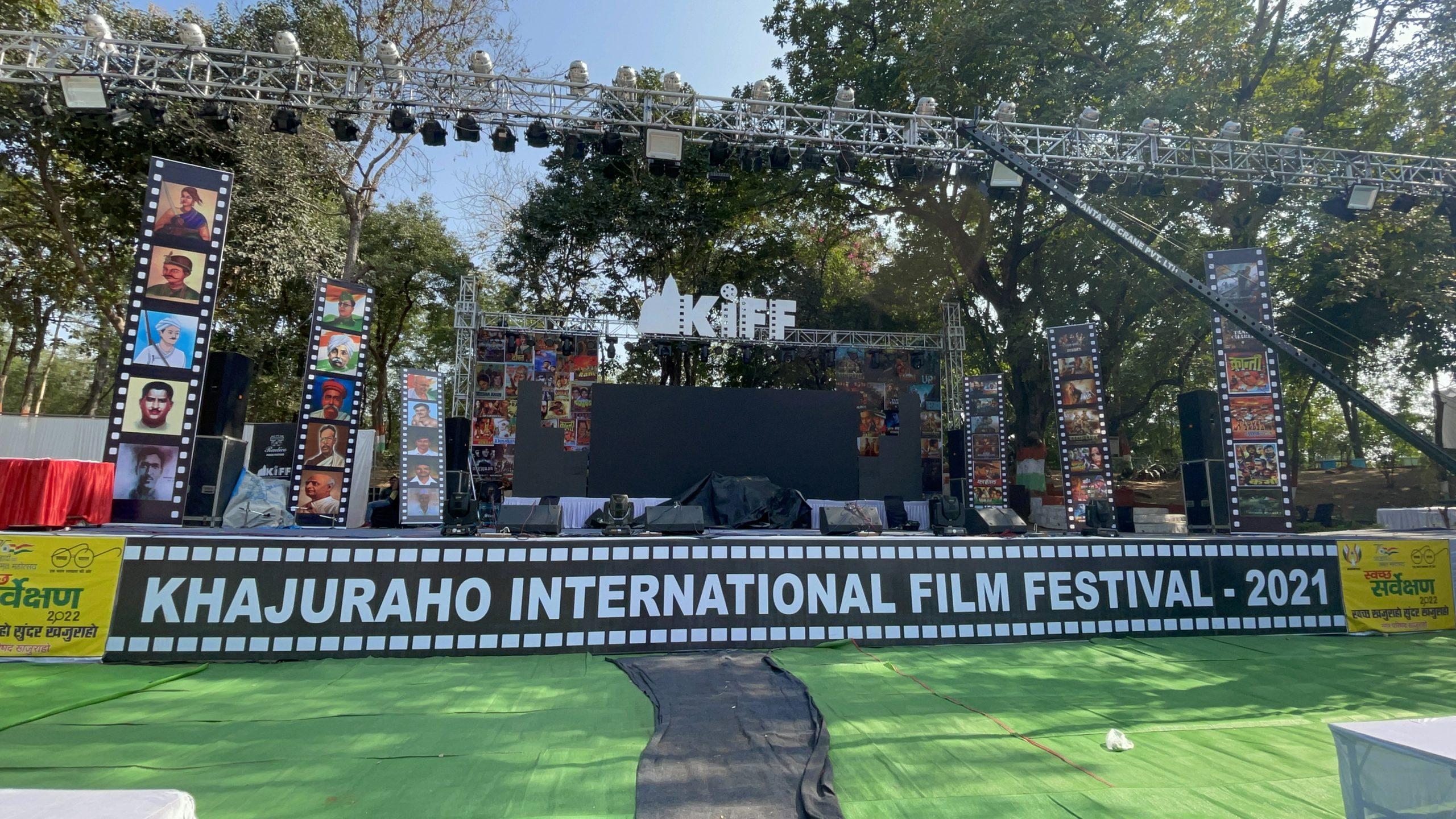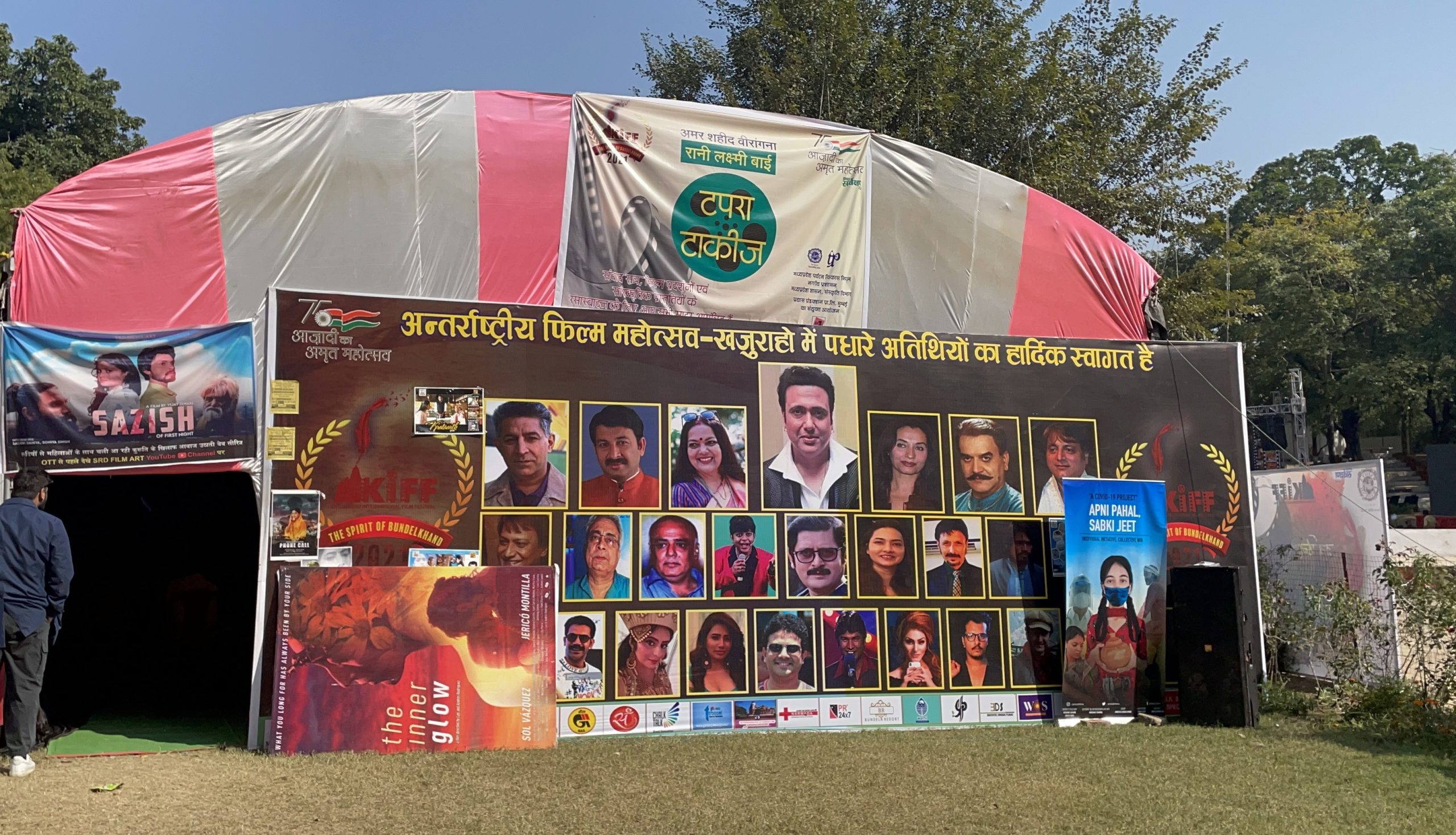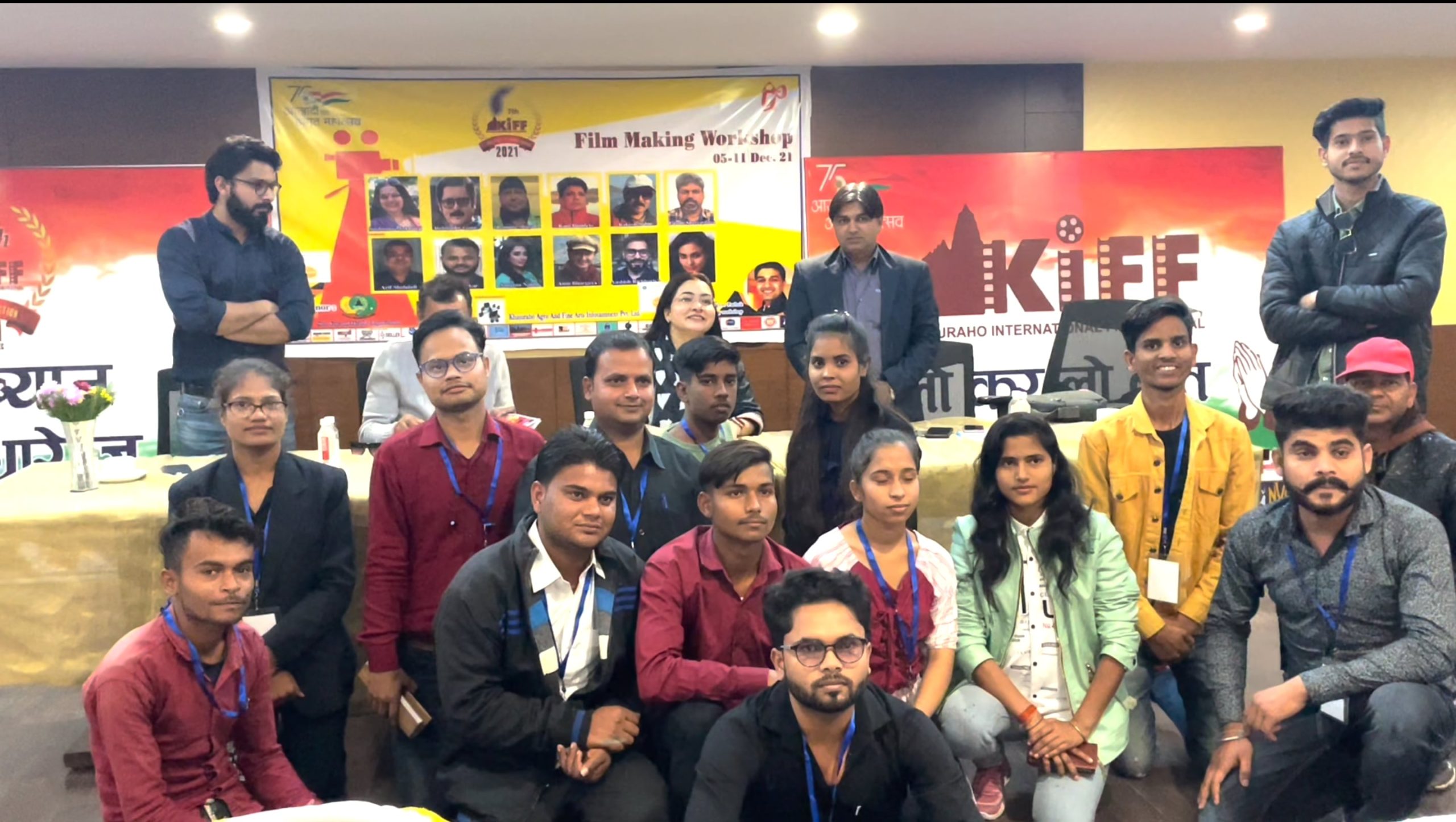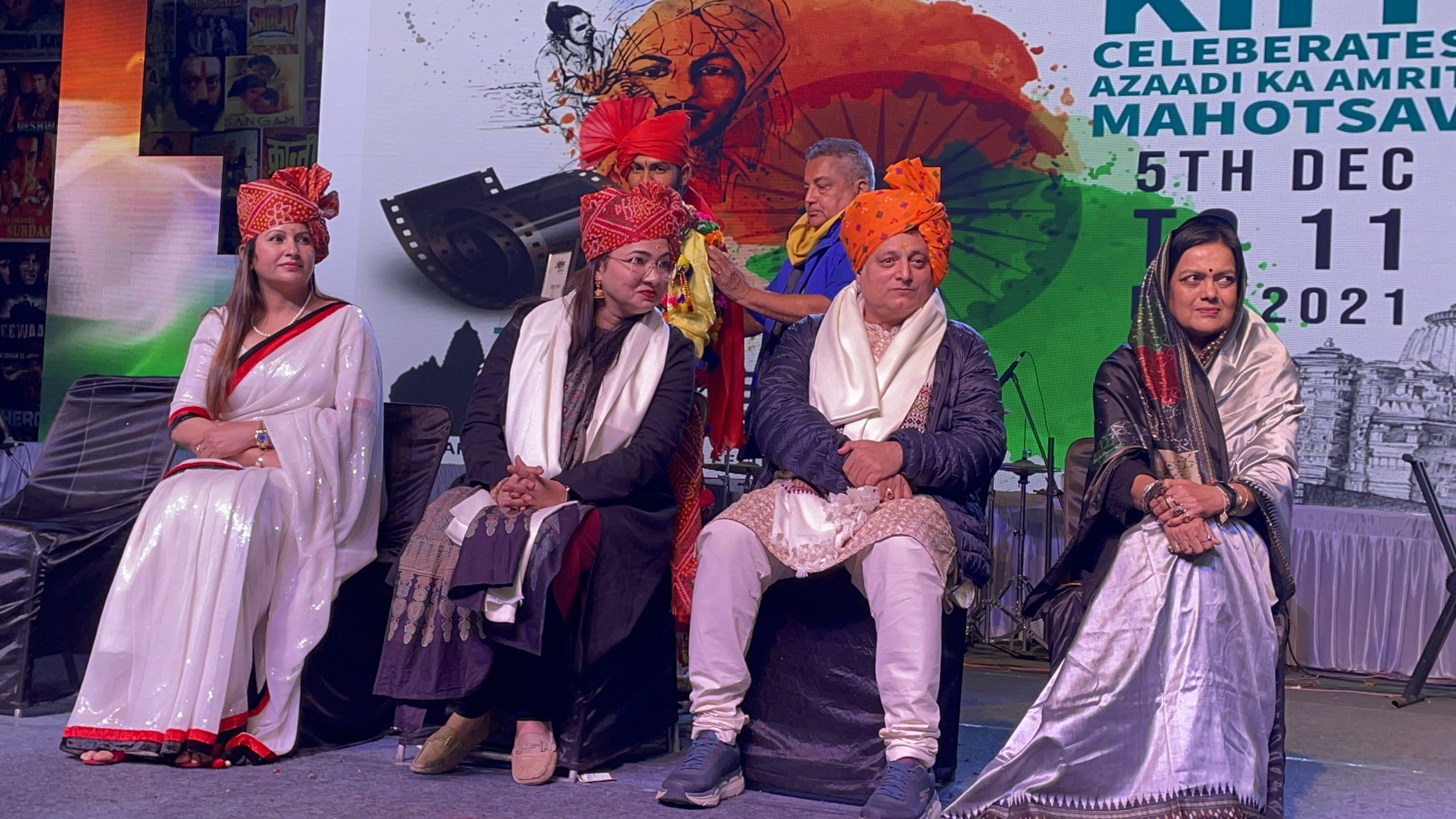


KHAJURAHO (MADHYA PRADESH): The UNESCO world heritage site of Khajuraho in Madhya Pradesh played host to the seventh edition of the Khajuraho International Film Festival (KIFF), which concluded on Saturday. The festival saw film makers, thespians, acclaimed artists and local “Covid warriors” being felicitated during its week-long run. This edition however did not see international presence due to COVID-related international flight restrictions.
Running for the past seven years, KIFF has come to be known as one of the prominent film festivals in India. Festival organisers tell you that it has been one fruitful journey. “There was practically no cinema in this region (of Bundelkhand). We built this concept of ‘tapra talkies’ where local filmmakers could present their films and have an engrossing discussion and exchange of ideas around it,” shared Rajeshwar Pratap Singh Judev, more famously known as Raja Bundela, the founder and organiser of the festival.

According to Raja Bundela, the main reason behind choosing the site was to increase tourism and employment in the region. “Film literacy was a big part of it as no one here watched many films or were excited about filmmaking,” he added. The festival is free of cost to everyone from attendees to performers and presenters.
As part of the festival, daily workshops are organised for students, where they are taught by filmmakers and actors from Mumbai. “There has been a tremendous response from students who come from remote villages. They are driven to create cinema for themselves and for the world,” said the ‘Aankh Micholi’ actor Grusha Kapoor, who was here to take a workshop.

Working in the film industry is still considered a taboo in this part of India. A lot of students attending the workshop were doing so in secret from their families, shared co-organiser and actor Sushmita Mukherjee. “KIFF is not an elite festival. Here we teach the locals to create their own cinema about their own issues. How long are we going to create films based in cities and manufactured in Mumbai?” questioned Mukherjee.
“To think there was no cinema in this town at all!” contended film director Ketan Anand. “We are here to make sure that every region in India has its own film industry. There was a time when we used to say ‘Bombay ki Film Industry’ and ‘Chennai ki Film Industry’… all that is in the past now. It is time to create your own films and be part of this borderless flourishing field of cinema,” he said.

From Bollywood actor Govinda to Television star Rohitash Gaud, the festival has been visited by notable actors and directors from the Indian film industry. We caught up with actor Manoj Joshi, known for his majorly comic supporting roles, who was all praises for the endeavour. “If you look at the present times, it is the directors, writers and visual artists from lesser known towns who bring their history and ideas to the big screen in Mumbai. There is a lot of talent in India, we just need to cultivate it,” said Joshi.
Cultural and contemporary performances livened the nights at the festival making KIFF a hit with the locals as well as visitors. Quite apt therefore that the locals have dubbed it as “chhote sheher mein bada tyohar” (a grand festival in a small town)!